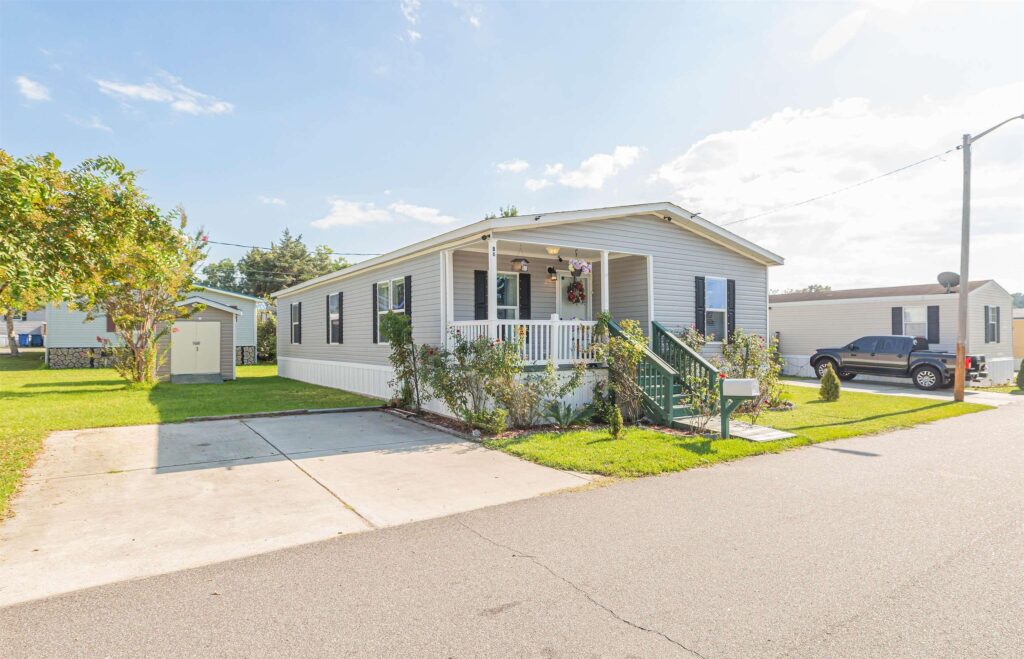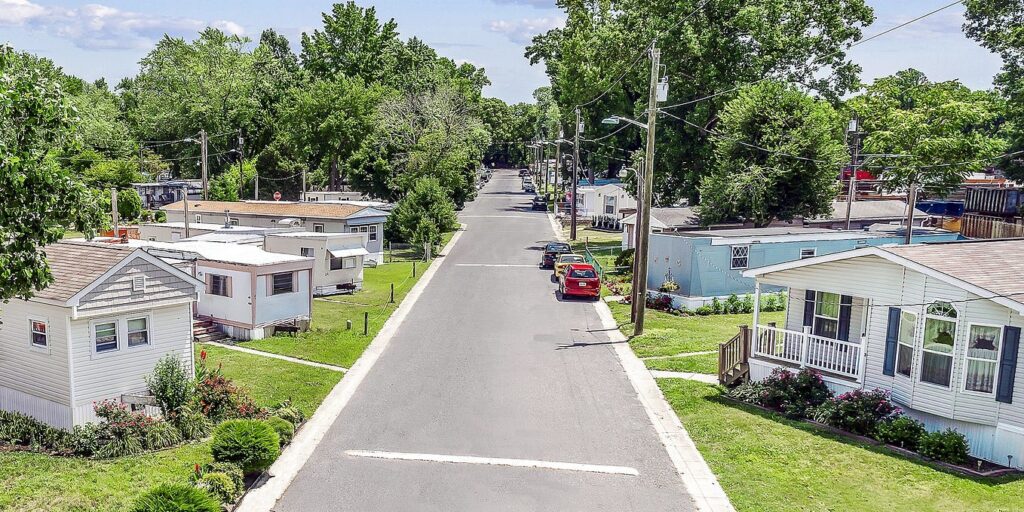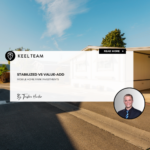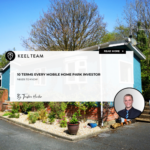How Scarcity Impacts Mobile Home Park Value
-
 Tristan Hunter - Investor Relations
Tristan Hunter - Investor Relations
The value of scarcity is evident in many aspects of life, from precious metals to real estate. Econ 101 taught us that in markets of contracting supply, demand usually increases significantly – typically driving up value. Similarly, mobile home parks are among the rarest forms of commercial real estate. This scarcity has led to substantial financial gains for their owners. But why are they so scarce, and how does this impact mobile home park value?

Historical Perspective on Mobile Home Park Zoning
In the 1950s and 1960s, the construction of mobile home parks was widespread, with few zoning restrictions. This period saw a boom in mobile home parks, driven by the demand from returning GIs and the involvement of high-profile celebrities like Bing Crosby and Bob Hope. Even Elvis Presley owned a mobile home park and featured in movies that showcased this unique lifestyle. At that time, there was no scarcity; mobile home parks could be built almost anywhere, diminishing the value of permits.
However, the landscape changed dramatically in the 1970s. The once-popular mobile home parks lost their charm, and cities across the United States began to restrict their development. This shift was driven by two main factors:
- Negative Perceptions: Mobile home parks developed a stigma, often seen as undesirable neighbors. This stigma led to a decrease in property values for adjacent single-family homes, sometimes by as much as 25%. Consequently, local communities opposed the construction of new mobile home parks.
- Economic Burden: Cities realized that mobile home parks could be financially burdensome. For instance, a mobile home park with 50 lots might generate $750 per lot annually in property taxes in a state like Missouri. However, the costs associated with providing services, particularly schooling for children living in the mobile home parks, could far exceed the revenue. This financial imbalance made cities reluctant to approve new mobile home parks.
The Unlikely Future of Mobile Home Park Development
Some people believe that attitudes towards mobile home parks might change, leading to a resurgence in their development. However, given the entrenched economic and social reasons, this seems unlikely. Federal initiatives to promote affordable housing, including mobile home parks, face significant challenges. The federal government lacks the authority to override local zoning laws. While opportunity zones may offer some potential for new development, these areas often are not attractive for building new mobile home parks or for potential residents.
Learn more! Watch expert mobile home park investing tips, as Andrew Keel takes you through the “Smart Ways to Improve Your Mobile Home Park Community“
Mobile Home Parks in the Housing Market
Mobile home parks typically occupy the lower end of the housing market, providing an affordable alternative to traditional homes. With the rising costs of single-family homes and apartment rents, mobile home parks meet an essential need for affordable housing. As living costs increase, the demand for mobile home parks continues to grow. Despite this demand, the supply remains tightly constrained. The U.S. sees the construction of approximately 10 new mobile home parks each year, while about 20 are demolished. This results in a net decrease, making mobile home parks even scarcer.
The Value of Mobile Home Park Permits
The true value of a mobile home park often lies in the rarity of its operating permit. While land value and income streams are significant, the scarcity of permits creates a unique market dynamic. This rarity is akin to the scarcity of gold, driving up its value. Other real estate sectors with similar scarcity include cemeteries and landfills, but these require substantial corporate involvement and have limited accessibility for individual investors.

Factors That Diminish Mobile Home Park Value
Not all mobile home parks are valuable investments. Certain factors can significantly diminish their desirability:
- Legal and Regulatory Issues: Mobile home parks lacking proper permits or facing legal challenges may not be viable investments.
- Infrastructure Problems: Mobile home parks with failing water or sewer systems, especially those without feasible repair options, pose significant risks.
- Location: Mobile home parks situated in remote or economically depressed areas may struggle to attract residents and generate income.
Conclusion
Mobile home parks represent a uniquely scarce commodity in commercial real estate. This scarcity can potentially lead to substantial financial benefits and provides a robust safeguard against market declines. Understanding the nuances of mobile home park investments is crucial for capitalizing on this rare and likely valuable opportunity. As with any investment, due diligence is essential to ensure that the specific mobile home park in question meets critical criteria for potential success.
Looking for more? Get in touch with the Keel Team below and learn more about this niche investment class.
Learn more about mobile home park investing.
Interested in learning more about mobile home park investing? Get in touch with us today to find out more.
Disclaimer:
The information provided is for informational purposes only and is not investment advice or a guarantee of any kind. We do not guarantee profitability. Make investment decisions based on your own research and consult registered financial and legal professionals. We are not registered financial or legal professionals and do not provide personalized investment recommendations.

Tristan Hunter - Investor Relations
View The Previous or Next Post
Subscribe Below 👇





